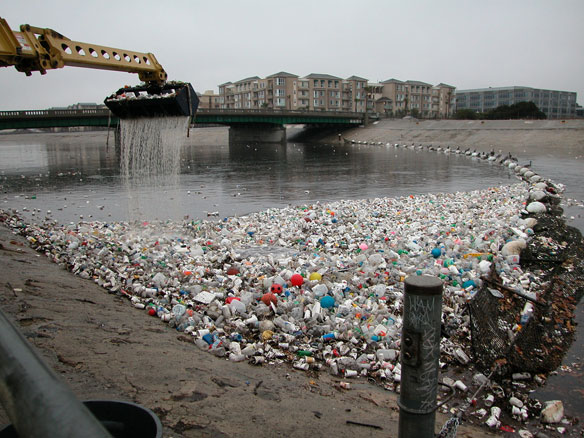The Afri-Plastics Challenge has now launched its second strand, Creating Solutions. This Strand invites individuals or organisations with a new or early-stage idea that seeks to reduce or eliminate plastic usage across sub-Saharan Africa to apply for the Afri-Plastics Challenge.

In recent years, the demand for plastic has substantially increased in sub-Saharan Africa with over 17 million tonnes of waste generated by the region annually, of which only 12% of plastic waste is recycled.
It is believed that scaling plastic waste collection and recycling cannot solve the problem alone, as the quantities of waste produced outpace the development of waste management systems, even as recycling is not considered an economically or technically viable option for several types of plastic.
According to the promoters, the Afri-Plastics Challenge aims to reduce marine plastics in sub-Saharan African countries by finding ways to minimise reliance on plastic, develop new ways of managing plastic waste, and/or develop new uses for plastic that has been discarded.
This challenge is designed for innovators and entrepreneurs across the African continent. The Challenge’s first strand, Accelerating Growth, was launched in July 2021 and it is ongoing.
For the second strand, Creating Solutions, 25 finalists and three winners will be selected by a panel of experienced and professional judges who will assess the entries. The applicants’ ideas will be evaluated against criteria such as innovation, empowerment of women and girls, social impact in the community, environmental impact and the applicants’ capability to achieve success.
Judges include Dr. Juliette Biao Koudenoukpo, UN Environment Programme Director & Regional Representative for Africa; Matthew Haden, who is a solid waste management expert; and Radhia Mtonga, a Zambian social entrepreneur.
“It’s extremely exciting to be part of an initiative committed to finding innovative solutions that promote the circular plastic economy while simultaneously improving the social economic standing of women and girls in sub-Saharan Africa,” says Mtonga.
By the end of the second strand of the Challenge, successful community-centred products and services will have demonstrated a sustainable approach to reducing the reliance on plastic that also supports the empowerment of women and girls. In the long-term, the development and scaling of the innovators’ solutions will encourage the creation of new, sustainable local enterprises, bringing economic opportunity to these communities and contributing to poverty reduction.
